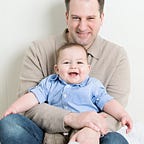After Covid, Don’t be a Homebody — Explore the World!
The greatest privilege in the modern human era is our ability to travel and learn about foreign cultures. When Covid ends, we all need to hit the road.
A little more than 150 years ago, prior to the continental railway being completed, if a family in New York City decided to move or visit San Francisco, the journey itself would take two years to complete.
Whether it was by wagon overland or by sea (around the South American continent), precipitation, schedules, and terrain represented major obstacles. Today, a journey between both cities takes roughly six hours.
Think about those circumstances and the prevailing risks associated with that voyage years ago. It is estimated that 60,000 people died taking the overland route from east to west prior to the continental railway being completed. The beauty of air travel today (and the safety in doing so) enables one to have breakfast in Rome and dinner in New York City if one is so inclined.
When the era of Covid ends, the best thing that could happen to the world and its human occupants is to schedule a vigorous amount of travel. Every company in the United States should add two weeks of vacation time when the globe is back and open for business.
Besides the economic benefits, which likely provide a living to half a billion people, we all benefit from sharing one another’s cultural insights and wisdom. It removes the mystique, the concern about ‘foreigners,’ and provides one with an appreciation for adventure.
What, if anything besides watching the series Stranger Things during Halloween, could be more adventurous than touching down in a foreign land? That’s a facetious question because there’s nothing adventurous about watching a Netflix series when your ass planted on the couch.
The opportunity to hear villagers sing to you in Fiji, taste the curries of Thailand, enjoy a platter-sized serving of wiener schnitzel in Vienna, or hear the evening grunts of Hippos in Kenya while nodding off to sleep: it’s these kinds of experiences that formed a positive view of the world for me. It was also the best thing for my marriage prior to the birth of my son.
My mother used to tell me it all starts when one enjoys his or her first trip overseas and getting bitten by the ‘travel bug.’ Once you see part of the world, you want to see all of it.
For my mom, it started in the early 1960s. She watched her mother inherit a small sum of unexpected money, and she opted to use it to travel the world. This egged on my mother, who not only dropped out of college, she went on to take a job in Rockefeller Center at Icelandair Airlines. This family legacy was rich in irony, given my grandmother’s desire to see her daughter graduate from college, yet she was a world traveler herself.
Back in the 60s, when a spot opened up on a transcontinental flight, airline employees were entitled to fly at rock-bottom rates for weekend trips to Europe. By 1962, the travel bug had infected my mother from head to toe. She spent the next eight years crisscrossing the planet: the Middle East, 10+ countries to Europe, Japan, Taiwan, Brazil, the Caribbean, and a half-dozen other countries.
It was the wiener schnitzel that got me in Vienna, coupled with several pints of beer, and then the sights, sounds, and smells of Prague that followed on the same trip. Five years later, I had a SCUBA diving license and when the relationship I shared with my girlfriend got serious, I told her she wouldn’t get a ‘rock’ until she got a diving license.
She had already traveled herself and her spirit of adventure struck a nerve in me. We went on to see the world before the arrival of our son, Connor. Three trips to Africa, complete with two safaris; weeks on live-aboard dive boats in places like The Galapagos, Tobago, and Belize; Barcelona and Hawaii; these experiences anchored us as parents and have in many cases provided us with hope during the pandemic.
Which has yet to end — this cursed disease ruined our summer plans to Italy this year. Today, roundtrip airfare to Milan (for three) can be purchased for $1,500 dollars, however, it’s an investment fraught with risk. Europe has yet to open its borders to Americans.
Which brings me back to the point of this story — the best antidote for everyone when Covid ends is getting out of the house. A world of homebodies will ruin the world. A generation without access to humanity’s culture would increase suspicion, unwarranted concerns, and reduce an understanding of our differences.
That’s where one often finds the best features about humanity itself — in the cobblestone crevices of Europe, in the limestone caves of Southeast Asia, or on the shores of the Indian ocean.
Just like in these photos, taken outside of St. Lucia, South Africa: here are protected Hippos grazing twenty feet away from where we stood and local Africans fishing in the sea.
Let’s work together to protect each other Covid, but rush to get re-infected from the travel bug when the world is back open for business.
Kendall Smith is the author of the forthcoming book, The Father Apprentice, scheduled to be release in 2021 by Familius Publishing.
